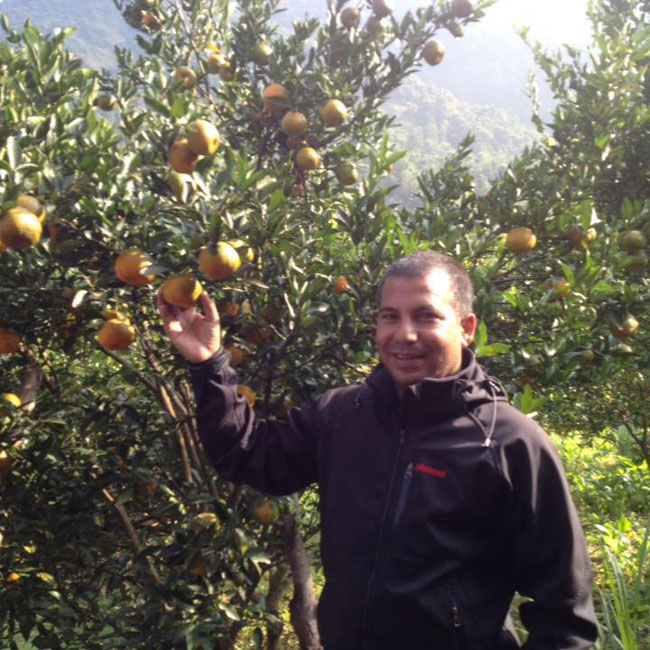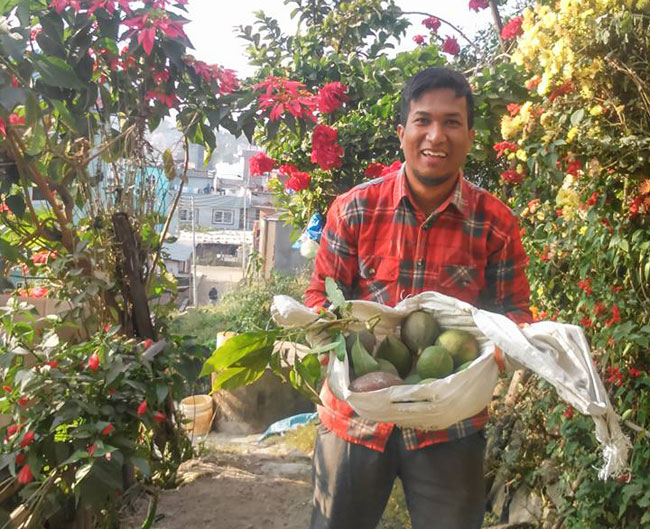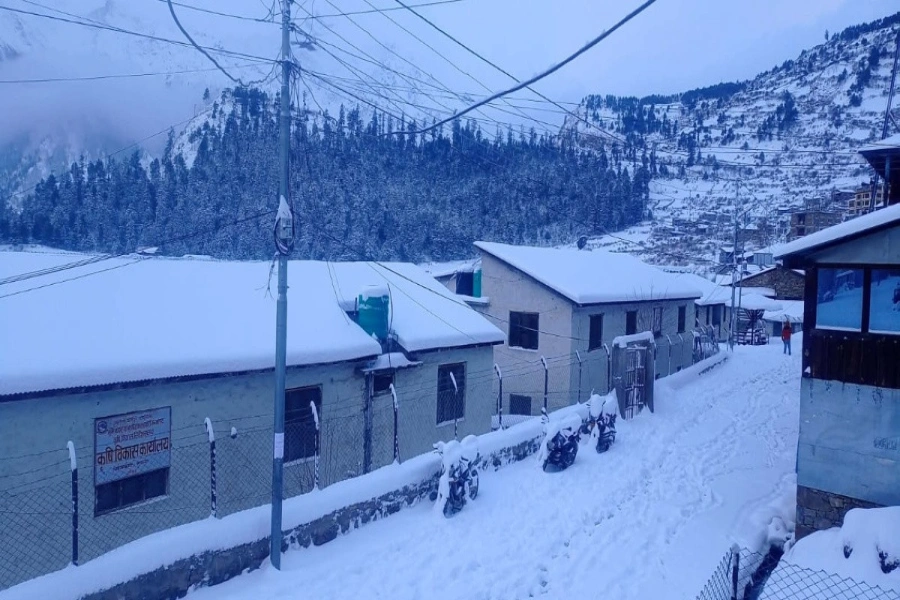Grocery shopping, in the capital, seems to be slowly becoming a cyber affair. More and more vendors, suppliers as well as producers can be seen capitalizing on social media to carry out their businesses. In fact, the positive response has also encouraged them to provide complementary services such a free home deliveries. We could even call it an emerging trend. The Week caught up with some produce suppliers who have enthusiastically jumped on the Facebook bandwagon. Even though they began with different intentions and are at different phases of their businesses, they are reportedly capitalizing on the perks. Here they share their experience.
Anga Raj Bharati

Bharati speaks of the time he had started delivering apples to one of the most popular supermarket chains in the valley. He says he remembers it very clearly because the apples that he was selling to them at Rs 150 per kg was being marked at Rs 250 right in front of him. He again stresses that it was happening right in front of him, the supermarket was earning more profit than he was from his hard work. Plus, the extent to which they had marked up the price rate also turned out to be a revelation for Bharati.
It took him nearly four years but experiences like these encouraged him to change the module of his produce supply business. For the last year and a half he has been directly dealing with his consumers by offering delivery service.
His rules are simple. The consumers get home delivery anywhere they want but they only take substantial orders. For instance, if somebody has to order some pulses, rather than just ordering one kilo, he encourages his clients to order a month’s worth of suppy which would probably be around five kilos. Bharati supplies a variety of produce from Karnali’s Chena rice, quinoa to honey. Though currently he is focusing on apples. With one permanent marketing staff and frequent seasonal hires, he has been able to smoothly run his business operations so far.
“From Kalimati to popular supermarkets, I have sold my produce via various outlets over the years but now I believe I have found a system that works. Cutting the middle men and directly dealing with the customers via home delivery services is proving to be profitable for me as well as the consumers,” says Bharati.
Varied shopping choices this Dashain

He has been primarily building networks via various agricultural and business fairs though he is thinking about getting started on social media as well. Bharati agrees that he too has sensed this trend coming around in the market. Many of his peers in the field have begun adopting the social media platform for selling their produce. All in all, he takes it as a positive development but warns beginners from jumping on the bandwagon too quickly.
He explains, “It’s like the organic craze that had swept the agricultural field a decade ago. Just because the concept is trending doesn’t mean it will result in a successful business. Those interested need to analyze other factors as well and be willing to commit long term.”
Srijan Gharti Magar

Since it’s not the tourist season, Gharti Magar has had a lot of time on his hands recently. A trekking guide by occupation, he quickly explains that he doesn’t have any experience in farming or the field of agriculture. However, there were a couple of avocado trees in his backyard and that’s how he got the business opportunity. He calls it a total experiment.
“Everybody is online these days. That’s how we connect, work and discover new things these days. As it is, online sites have been very successful in the retail business and I thought why not apply it to the avocados as well. I was simply curious to see how much I could sell but I was careful not to have high expectations,” he says.
As it turned out, he is currently out of stock. He sold all the avocados in his garden through his Facebook page, Avocado Nepal and then some more by collaborating with other people who too had avocados in their gardens and had approached him, again, through his Facebook page. For a small-scale operation, he is currently satisfied with the 25,000 rupees profit that he was able to make.
He is well aware that if the social media platform weren’t available to him, he would probably have to open a shop of his own and even then, only have limited access to consumers. Gharti Magar explains that when he initially created a page for Avocado Nepal it gathered around 60 likes. Then when he opted for paid advertisement and boosted the page, within a space of two weeks, his page had collected around 6000 likes and the order calls started coming in. He apparently also made it a point to post his page on various Facebook groups like Kathmandu expats or the homepages of certain restaurants.
“It was relatively easy even though I was running the whole thing alone. As I mentioned, this was just an experimentation, I didn’t want to waste the avocados in my garden but the success has encouraged me to look at possibilities of expanding the scale of the operation,” says Gharti Magar.
Deepak Ratna and Jagriti Shrestha

When Ratna and Shrestha decided to return to Nepal after seven years of stay in the UK, Ratna says his parents had some sound advice. They told him not to come back to Nepal as a job seeker but rather as a job creator. So that’s been the plan for these two partners with their five and a half month old venture, Farm to Finger Pvt. Ltd.
Their business has quite the ambitious concept of connecting farmers from some of the most rural to the urban consumers, not only in the capital but other big cities as well. Considering they too have witnessed apples worth Rs 50 per kilo being ultimately sold at Rs 350 in the market. Their scheme also focuses on helping the farmers earn better and enabling the consumers to spend less. Ratna explains with the example of the same apples.
“If we can sell those apples worth Rs 50 per kilo at Rs 100 and then home deliver it to our consumers at Rs 150, it’s a double win. By helping establish a direct chain between the producers and the consumers, all parties involved can benefit,” says Ratna. Further, they are also focusing on creating a market for the products that is hard to get in and around the city. For instance, among the 25 products that they currently sell, there are also items like black rice.
It’s certainly an ambitious project and Ratna agrees that it wouldn’t be possible without the reach provided by the social media services. They are heavily relying on it for marketing purposes as well as to create a portfolio for themselves.
Ratna sees such use of social media as a trend that is “bound to be massive at one point down the line for produce supply business.” While he complains about pay and transport system still not being as reliable as it should be, slowly but surely, he expects this social media inspired business module to catch on. According to him, these glitches too should be solved with time so he believes its best for start up businesses like his to hold on and sustain itself for the time being.
So along with a social media manager, Farm to Finger Pvt. Ltd has also hired employees for delivery services. In fact, Ratna himself bikes around town to meet the orders. Though he says they have their share of good and bad days, on average they tend to make around 10 free deliveries in a day. He believes services and conveniences like these have really helped pull in as well as maintain customers.







































